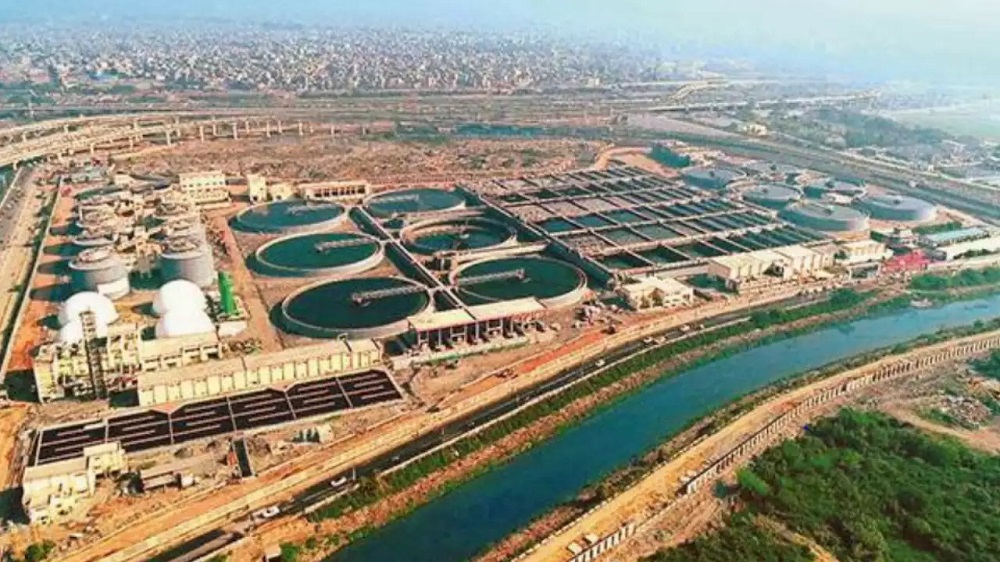What is Wastewater Treatment Plants
Wastewater Treatment Plants Manufacturer

What is Wastewater Treatment Plant?
A wastewater treatment plant, also known as a sewage treatment plant, is a facility designed to treat and process wastewater from various sources, including residential, commercial, industrial, and agricultural activities. The primary purpose of a wastewater treatment plant is to remove contaminants, pollutants, and impurities from the wastewater before discharging it into the environment or, in some cases, reusing it for various purposes. The treatment process ensures that the discharged water is safe for the environment and does not pose health risks to humans or aquatic life.
Process of Waste Water Treatment:
Preliminary Treatment: This is the initial stage where large objects, debris, and solids like sticks, plastics, and trash are removed from the wastewater. Screening devices, such as bar screens and grit chambers, are used for this purpose.
Primary Treatment: In this phase, the wastewater undergoes physical separation. It is held in large settling tanks, allowing heavy solids (sludge) to settle to the bottom and lighter solids (scum) to float to the top. The relatively cleaner water in the middle is then moved to the next treatment stage.
Secondary Treatment: Secondary treatment is a biological process where microorganisms, often in aeration tanks, break down organic matter in the wastewater. This process converts pollutants into harmless substances like carbon dioxide and water, significantly improving water quality.
Tertiary Treatment: Some wastewater treatment plants include an additional step known as tertiary treatment, which involves advanced filtration, chemical disinfection, and nutrient removal. Tertiary treatment further purifies the water to meet specific water quality standards.
Disposal or Reuse: After undergoing the treatment process, the water is typically released into natural water bodies like rivers or oceans, provided it meets strict regulatory standards. In some cases, treated wastewater can be further treated and safely reused for purposes such as irrigation, industrial processes, or even as a source of drinking water (potable water reuse).
The Benefits of Wastewater Treatment:
Public Health: By removing harmful pathogens and contaminants from wastewater, these plants protect public health and prevent the spread of diseases.
Environmental Protection: Wastewater treatment plants reduce pollution in natural water bodies, helping to preserve aquatic ecosystems, wildlife, and water quality.
Resource Conservation: Treating and reusing wastewater conserves freshwater resources, especially in regions facing water scarcity.
Compliance with Regulations: Industries and municipalities must meet strict environmental regulations, and wastewater treatment plants play a vital role in ensuring compliance to avoid legal and financial penalties.
Overall, wastewater treatment plants are essential for maintaining environmental sustainability, protecting public health, and responsibly managing water resources in modern society. Their role in cleaning and purifying wastewater is vital for the well-being of communities and the health of the planet.
The Benefits of Wastewater Treatment
Public Health: Wastewater treatment plants protect public health by ensuring that harmful pathogens are removed from the water before it is released into the environment or returned for reuse.
Environmental Preservation: By reducing pollution in natural water bodies, these plants contribute to the preservation of aquatic ecosystems, wildlife, and biodiversity.
Resource Conservation: Treated wastewater can be safely reused for various purposes, including irrigation, industrial processes, and even drinking water. This conserves precious freshwater resources.
Regulatory Compliance: Wastewater treatment plants help industries and municipalities adhere to strict environmental regulations, avoiding costly fines and penalties.
The Need for Wastewater Treatment
Wastewater is essentially any water that has been used and discharged, be it from homes, industries, or agriculture. This water often contains contaminants, including harmful bacteria, chemicals, and pollutants. Directly releasing untreated wastewater into natural bodies of water can have disastrous consequences for aquatic life, ecosystems, and human health.
Wastewater treatment plants are the unsung heroes that work tirelessly to transform this polluted water into something safe and environmentally friendly. Let’s take a closer look at how they achieve this remarkable feat.
Conclusion
Wastewater treatment plants are essential components of modern society’s commitment to environmental sustainability and public health. They are the guardians of our water resources, ensuring that the water we release into the environment is clean, safe, and free from harmful contaminants. As we move towards a more sustainable future, the importance of these facilities in managing our water resources cannot be overstated. Their work exemplifies the power of human innovation and technology to mitigate the impact of our activities on the planet, making the world a cleaner and healthier place for all.
Waste Water Treatment Plant Manufacturer in India
Unistar Aquatech is a leading manufacturer of Waste Water Treatment Plant in India
Unistar Aquatech is a leading manufacturer of Waste Water Treatment Plant in India, known for its commitment to excellence, innovative solutions, and a strong focus on environmental sustainability. With a rich history of providing cutting-edge wastewater treatment solutions, Unistar Aquatech has established itself as a trusted name in the industry.
Our state-of-the-art facilities and dedicated team of experts enable us to design, engineer, and manufacture a wide range of wastewater treatment plants tailored to meet the diverse needs of industries, municipalities, and communities across India. We take pride in our ability to offer customized solutions that address the unique challenges posed by varying wastewater compositions and volumes.
For any type of queries, Please Contact us!
